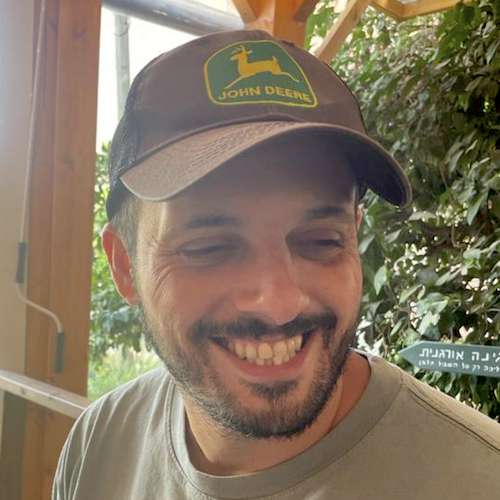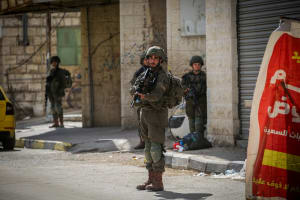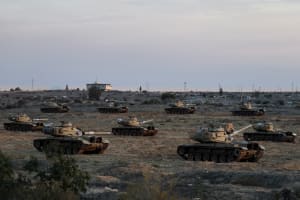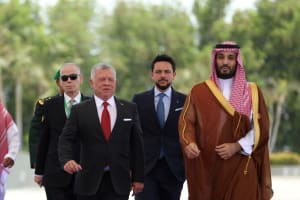Rewriting the hasbara script: Israel's struggle to reshape its global narrative

In one of Pulitzer Prize winner Alison Lurie's novels, a character astutely observes that diplomacy is about "finding common ground and fostering collaboration" rather than winning or losing. This insight offers a poignant lens through which to examine the challenges facing Israel's Hasbara efforts.
Hasbara, Hebrew for "explanation," is Israel's approach to public diplomacy, aimed at shaping global perceptions of the Jewish state.
In recent times, Israel's Hasbara efforts have unfortunately fallen short on multiple fronts: struggling to find common ground; failing to effectively explain its position; and in many ways, losing the global narrative battle. This communication challenge has become particularly evident in the wake of recent events, exposing critical weaknesses in Israel's approach to public diplomacy and international engagement.
For decades, Hasbara has been a linchpin of Israel's efforts to defend its actions and articulate its policies to the world. However, recent events have revealed that this approach, while distinct from traditional diplomacy, has not been successful in fostering the kind of understanding and collaboration that Lurie's quote suggests is crucial in international relations. Instead, Israel finds itself grappling with the challenge of effectively conveying its message on the world stage, often falling short in both explaining its position and garnering international support.
The Dismantling of Official Channels
The aftermath of the October 7, 2023 attack on Israel revealed a fragmented and ineffective system for public diplomacy. In a startling move, the Israeli government closed down its Public Diplomacy Ministry in November 2023, merely a month after the devastating assault. This decision, prompted by the resignation of Minister Galit Distel Atbaryan, who cited insufficient resources and overlapping responsibilities with other agencies, left a significant void in Israel's coordinated communication efforts.
The reallocation of the ministry's budget to support communities near the Gaza border, while undoubtedly necessary, created a gap in Israel's ability to present a unified strategy to the international community. This dissolution of official Hasbara channels occurred at a time when clear, consistent messaging was more crucial than ever.
Challenges for Key Communicators
Even Israel's most skilled communicators found themselves facing unprecedented hurdles. Eylon Levy, a popular English-language spokesperson known for his articulate defense of Israeli policies, was removed from his position in late March 2024. This decision, reportedly due to the sharing of inaccurate information about humanitarian aid to Gaza, highlighted the precarious nature of Israel's public diplomacy efforts.
Levy's critique of the government's approach was telling. He pointed out a lack of aggressive messaging and clear directives, noting that television interviews were conducted with only general talking points rather than a coherent strategy.
The Opposition's Messaging Triumph
In stark contrast to Israel's struggles, the opposing narrative has gained significant traction on the global stage. Despite Hamas being the instigator of the October 7 attack, their supporters have managed to craft a simple, emotionally resonant message that often portrays Israel in a negative light. This effectiveness can be attributed to several factors.
At the core of their strategy is a straightforward narrative focusing on Palestinian suffering and alleged Israeli aggression. This simplified message resonates easily with audiences unfamiliar with the complexities of the conflict. They have also mastered the art of powerful emotional appeals, highlighting civilian casualties and the humanitarian crisis in Gaza, which elicits strong sympathy from global observers.
The widespread sharing of impactful visual content depicting destruction in Gaza has been particularly effective in shaping public opinion. These images and videos, often shared without context, create a visceral reaction that can overshadow more nuanced discussions of the conflict's origins and complexities.
Another key to their success has been the consistency of their messaging across various platforms and spokespersons. This unified front presents a coherent narrative that contrasts sharply with Israel's sometimes contradictory statements. Finally, their effective utilization of social media has allowed them to rapidly spread their perspective, often outpacing official Israeli communications and shaping the narrative before Israel can respond.
Crucially, this opposing narrative is bolstered by substantial financial resources. The anti-Israel campaign is very well-funded, with significantly more financial backing than the Israeli side. This disparity in funding allows for more extensive and sophisticated media campaigns, professional public relations efforts, and a wider reach across various platforms and demographics.
A coordinated effort to boost the Hamas narrative involves several key players:
Qatar plays a significant role in this effort. The Gulf state hosts key members of Hamas's senior leadership, including Ismail Haniyeh, Khalil al-Hayya, and Khaled Mashal. Qatar provides both political and financial assistance to Hamas and uses its state-owned Al Jazeera network to amplify Hamas messaging.
The Council on American-Islamic Relations (CAIR) has also been implicated in efforts to support the Palestinian cause, though it's important to note that the nature and extent of their involvement are subjects of ongoing debate.
The People Media Project, a U.S.-based nonprofit organization, has been accused of providing financial support to a Hamas operative. This organization operates the Palestine Chronicle website, which allegedly published articles by Hamas members.
The result is a highly organized and well-resourced communication strategy that often overwhelms Israel's more limited Hasbara efforts.
Israel's Counter-Narrative Struggles
Israel has faced significant challenges in effectively communicating its position due to several factors. One of the primary difficulties lies in the complexity of explaining nuanced military operations and justifying actions in a conflict zone. The intricacies of urban warfare, efforts to minimize civilian casualties, and the challenges posed by an enemy that embeds itself within civilian populations are not easily conveyed in sound bites or social media posts.
Furthermore, Israel often finds itself in a reactive stance, responding to accusations rather than proactively shaping the narrative. This defensive position puts Israel at a disadvantage, constantly trying to refute claims rather than setting the terms of the discussion. The lack of a centralized Hasbara strategy has led to mixed messages emerging from various Israeli officials. This inconsistency weakens the overall impact of Israel's communications, as contradictory statements can undermine credibility and confuse audiences.
Maintaining international sympathy has proven challenging in light of the scale of military operations in Gaza. The images of destruction, regardless of the context or necessity of the operations, have made it difficult for Israel to maintain support, even among traditionally sympathetic audiences.
Lastly, the dismantling of Israel's public diplomacy infrastructure left it ill-prepared to respond effectively when the crisis erupted. The absence of a coordinated, well-resourced communications apparatus has hampered Israel's ability to rapidly and effectively convey its message to the world.
The Rise of Unofficial Advocates and Evangelical Champions
In the absence of a robust official Hasbara apparatus, a diverse array of unofficial voices has stepped up to advocate for Israel. Commentators and public intellectuals, such as Douglas Murray, have taken on the role of explaining Israel's position to international audiences, often with more freedom to present forceful arguments unconstrained by official government positions.
Alongside these voices, prominent Evangelical leaders have demonstrated strong support for Israel in the wake of recent events. Mike Huckabee toured areas in southern Israel affected by the October 7 attack, emphasizing the critical importance of his visit. Similarly, Reverend Franklin Graham became the first major Evangelical leader to visit Israel after the attack, providing relief supplies and meeting with Prime Minister Benjamin Netanyahu. These leaders' actions, including touring affected areas and offering tangible support, underscore the deep commitment of many in the Evangelical community to Israel's cause.
Politicians, especially in the United States, have voiced strong support for Israel's right to defend itself against Hamas. These unofficial advocates and Evangelical champions frequently frame the conflict in terms of good versus evil, a perspective that resonates deeply with their constituents and followers. This combination of intellectual argument and moral clarity has provided Israel with a passionate and articulate base of support, helping to counter the narrative challenges it faces on the global stage.
A Call to Action for Israel's Allies
As Israel grapples with these communication challenges, the need for support from its allies, particularly within the Evangelical community, has never been greater. The words of Jesus in Matthew 25:40 resonate deeply: "Truly, I say to you, as you did it to one of the least of these my brothers, you did it to me."
Today, Israel finds itself in a position of vulnerability, struggling to articulate its needs to an often uncomprehending world. Like the "least of these" that Jesus speaks of, Israel now needs support more than ever.
To Israel's Evangelical allies, the mandate is clear. The Hebrew word "shaalu" in Psalm 122:6 – often simply translated as "pray for" – carries a deeper imperative. It calls us to take an active, unwavering interest in Jerusalem's welfare. Now is the time to rise as watchmen on the walls, engaging in fervent advocacy and steadfast support. As Israel grapples with one of its greatest communication challenges, our role is not just to observe, but to amplify its voice and stand in solidarity with God's chosen people.
In this light, perhaps diplomacy, Hasbara, and prayer are more closely intertwined than we realize. Just as Lurie's character saw diplomacy as a means of finding common ground and fostering collaboration, true prayer for the peace of Jerusalem calls upon those who stand with Israel to actively bridge the gap between Israel's current diplomatic communication failures and its just cause. How will you respond to this call?

Tolik is a Middle East analyst and media professional with extensive experience in covering regional geopolitical developments. His background spans analytical journalism, media production, and strategic communications, having contributed to major Israeli and international television networks and newspapers.
You might also like to read this:














